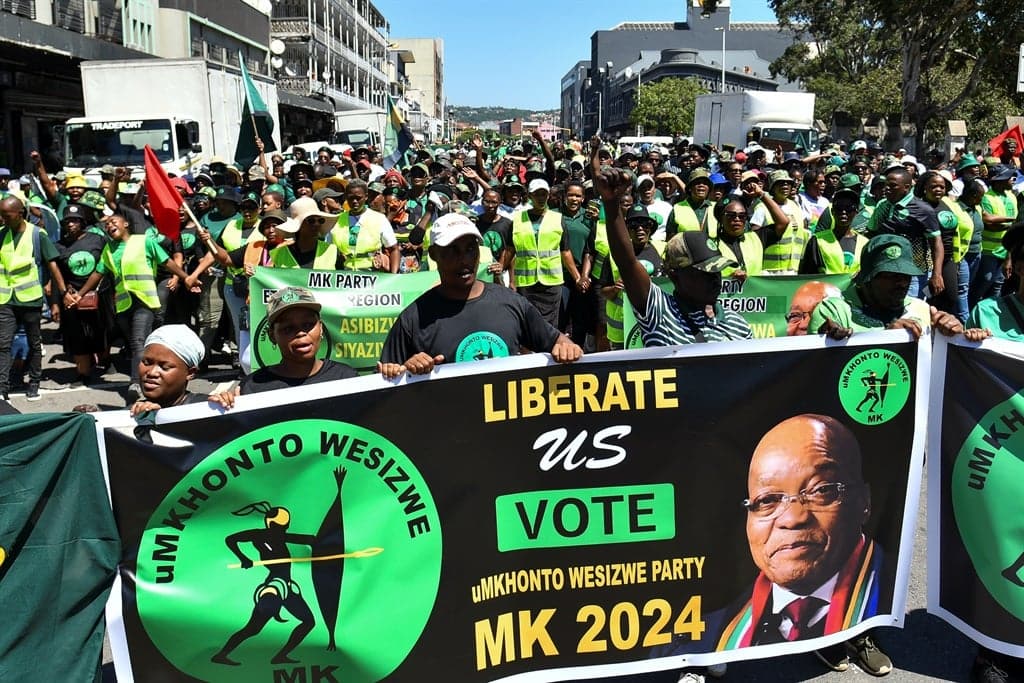The electoral court gave reasons on Friday as to why it found earlier this month that ex-pres. Jacob Zuma can be put up for election in the upcoming election. This despite the fact that he has a criminal record. The order comes after Zuma’s MK party appealed against a decision by the Independent Electoral Commission (IEC) that Zuma may not stand for election.
The electoral court found that the 15-month prison sentence Zuma was given for contempt of the Constitutional Court did not amount to a sentence, as he did not have the right to appeal.
Art. 47(1)(e) of the Constitution states that anyone who is found guilty of an offense and sentenced to more than 12 months imprisonment without the option of a fine, may not become a member of the National Assembly.
The MKP argued that the above article did not apply to Zuma, as he did not have the right to appeal against the verdict. This is because one cannot be considered “sentenced” until an appeal against the conviction or sentence has been instituted, according to the MKP. “Zuma was sentenced by the highest court and his sentence was therefore not appealable.”
According to the law, the relevant article is never immediately enforceable, as an offender first has the chance to file an appeal against his conviction or sentence. The IEC, on the other hand, reasoned that because Zuma had been sentenced by the highest court and therefore could not appeal, the provision in the law was immediately applicable.
The electoral court here agreed with the MKP’s interpretation of the law. “The framers of the Constitution recognized a person’s right to appeal against their sentence or conviction. If it was not important to them, they would not have inserted a part in the relevant article which states that the law can only come into force after the completion of an appeal process.”
The court did not dispute that Zuma was found guilty of a crime, and that, by disobeying a court order, he did commit a criminal offence.
The MKP also argued that Zuma was in prison for only three months before he was released, as part of a presidential pardon program. Article 47(1) of the Constitution should therefore not apply to him.
“The result of the pardon was that he was sentenced to only three months in prison and that the remainder of his sentence was cancelled.” However, the court did not agree with this and said that the president does not have the power to erase a sentence imposed by a court.
The IEC has meanwhile approached the Constitutional Court to lodge an appeal against the electoral court’s decision. The commission believes it is in the public interest that certainty is given about the proper interpretation of art. 47(1)(e) of the Constitution. Parties have been given an extension until April 30 to file court papers in the case.








